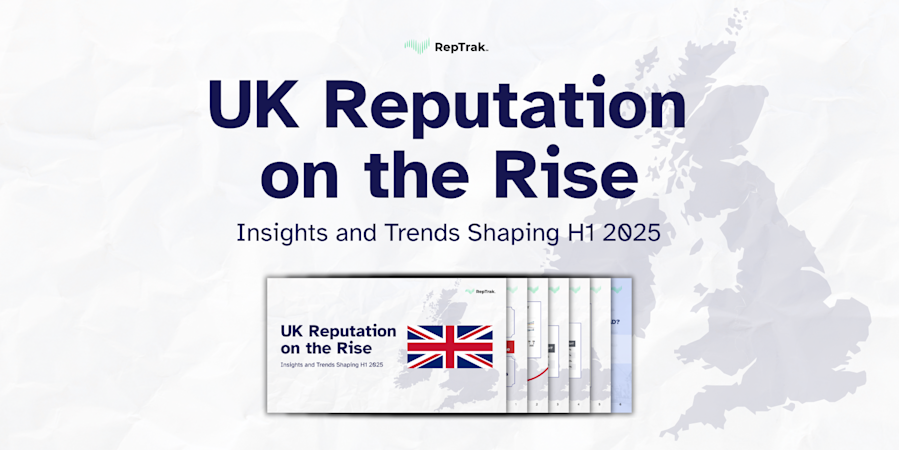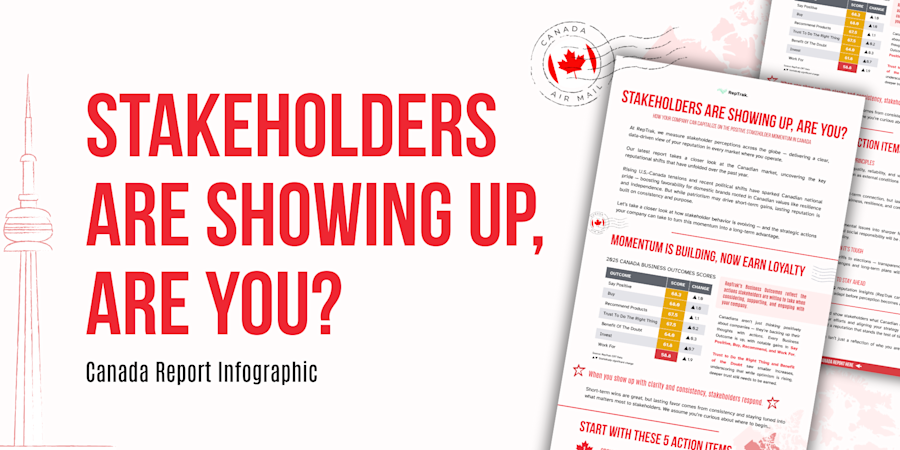Industry HUB: Insurance Moves From Average to Strong
Blog Post07 Mar, 2022
The Future of Insurance
The global insurance industry improved in 2021 and is in a firm position in 2022. While the sector is still in the middle among the industries RepTrak measures, its global Reputation Score went from average (69) to strong (70). This increase is due to growth across all Drivers. Products, Conduct, and Citizenship are the industry's strengths; of the three, companies perform most strongly across Products.
The support from the public has translated into improved brand perceptions and Business Outcomes for the industry. In a year where global brand measures stayed flat broadly, the insurance industry saw an average increase of 3-percentage points among advocates (strong supporters). In turn, Business Outcomes like "Benefit of the Doubt," "Trust to Do the Right Thing," and "Willingness to Buy" also saw improvements.
Insurers around the world are cautiously optimistic about their 2022 prospects. While expectations for financial performance are up, challenges still exist. Sustainability and ESG are at the fore of underwriting and investment portfolios. The industry is also tackling related issues like diversity and social responsibility. Legislative reforms, operating changes, and future work strategies for insurers are all top of mind.
In 2022 the reputation priorities of the insurance industry have not shifted significantly. Insurers have the needed momentum to explore two distinct avenues for reputation progress:
Communicate Product Value
Persevere on ESG
Communicate Product Value
The first reputation imperative for insurers is to maintain and convey Products excellence and value. Products is the industry's perennial top Driver. However, in 2022, more critical are its related reputation Factors:
Offers products and services that are a good value for the money
Offers high-quality products and services
Meets customer needs
While some industries have flexibility when considering which Drivers and Factors to emphasize, insurers must double down on Products and these three Reputation Factors. These factors rank in the top three most important across all global markets (Americas, EMEA, and APAC). This significance remains unchanged across various demographics: customers, non-customers, millennials, and non-millennials consistently agree that those three Factors contribute most to the industry's reputation.
Insurers must prioritize delivery of "good value." However, rising inflation presents an external threat to perceptions of value. For the industry, rising inflation coupled with rising costs can potentially result in higher prices for buyers. Globally, RepTrak has not yet seen an effect of inflation on reputation so far, but it could materialize later this year.
To mitigate reputation risk, insurers must reduce adverse public perceptions of value. Currently, the industry performs just average on "good value products and services," with a global score of 68.9. Insurers should monitor this issue; additionally, they must continue to emphasize the importance of their offerings relative to rising prices and showcase how they continue to meet the public's needs.
Persevere on ESG
Broadly, insurers have accepted ESG as part of the business. While the industry agrees that ESG as a concept is necessary, the myriad of definitions, disclosures, and competing stakeholder demands make defining a strategy difficult. However, companies are determined; nine of 10 senior insurance executives around the world noted their companies are increasing investments to:
ESG efforts in climate sustainability
Diversity in hiring, development, and leadership
Economic improvement of the communities they serve, most likely by making products more available and inclusive
Ethical decision making and reducing conduct risk
Insurers must stay the course; their investments in ESG are realizing reputation benefits. In 2021, ESG factors for the industry improved an average of 1 – 2 points globally. The public recognized insurers for reducing their environmental footprint, supporting their local communities, and improving people's lives through social actions.
Increasingly, insurance firms develop and implement sustainability goals that align with their stakeholders and broader community. In Europe, insurers have outperformed their global peers in disclosures. Firms adapt their products for greater sustainability with customizations that, for example, include special insurance rates for energy-efficient buildings or cars with recycled parts and travel insurance featuring carbon offsets. Creating green products is one strategy for ESG; insurers can flex further and incorporate ESG factors across their complete offerings.






